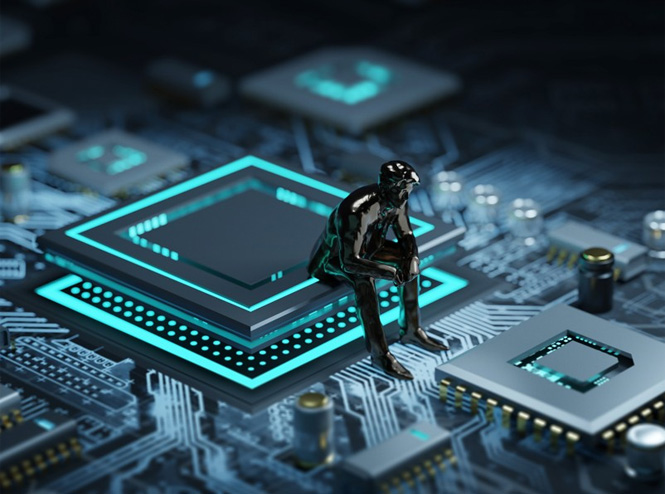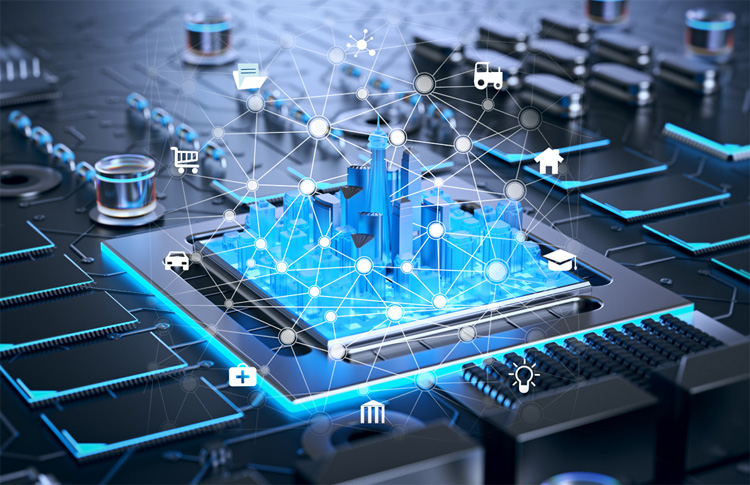
In the era of Industry 4.0, the industrial sector is witnessing an unprecedented integration of technologies, redefining how operations are conducted. At the heart of this transformation lies embedded systems, a key component driving the transition to a more connected and intelligent industrial environment.
The industrial revolution, or Industry 1.0, was marked by the advent of steam engines, which facilitated the automation of manual labor. The subsequent phases of industrial evolution, Industry 2.0 and 3.0, witnessed the introduction of assembly lines and digital systems, respectively.
However, the fourth industrial revolution, commonly referred to as Industry 4.0, is a paradigm shift, characterized by the integration of cyber-physical systems, the Internet of Things (IoT), and the Internet of Services (IoS). At the core of this revolution is the concept of embedded systems, driving the transformation of industrial operations.
Embedded systems refer to highly specialized computer systems designed to perform dedicated functions within larger mechanical or electrical systems. Unlike traditional desktop computers, embedded systems are typically a part of the machine they control and are characterized by real-time computing constraints.

In the context of Industry 4.0, embedded systems are integral to the creation of intelligent, interconnected digital systems, capable of self-regulating and optimizing production processes. These systems enable project-specific solutions, catering to the unique requirements of IoT implementations.
Embedded systems have revolutionized industrial automation, reducing the effort required for wiring and increasing system flexibility. Initially based on 8 or 16-bit microcontrollers, embedded systems have evolved to leverage advanced architectures and technologies, facilitating increased networking and data supply.
The advent of Industry 4.0 and IoT has resulted in the ubiquitous networking of intelligent digital systems. Machines are now capable of controlling each other through advanced information and communication techniques, optimizing production processes in real-time. However, this requires the availability of relevant data, necessitating efficient data management frameworks.
Embedded systems offer potential solutions for these challenges, with ARM-based CPUs providing robust system and security concepts. These systems offer an ideal platform to address the energy efficiency requirements of IoT and Industry 4.0, boasting the highest performance per chip surface.
One of the significant challenges of the connected industrial environment is ensuring data security. As machines, systems, and devices are networked, the transfer of safety-critical information must be secure. Embedded systems offer several hardware and software solutions to implement secure, reliable systems, preventing unauthorized access to critical data.
Technological advancements have enabled the development of more powerful and efficient embedded systems. For instance, ARM-based CPUs have seen rapid developments in terms of performance, integrating application-specific interfaces for various markets while maintaining high security standards.
Wireless networks are gaining prominence in data transfer, with technologies such as Wi-Fi, Zigbee, and LoRaWan becoming increasingly popular. Embedded systems facilitate the integration of these wireless networks, making data networking more accessible and cost-effective.
Embedded systems offer the flexibility of choosing an operating system based on project requirements. Options can range from Android, Linux, QNX, VxWorks, a real-time OS by Green Hills, or Bare Metal. The choice of operating system can optimize performance, enabling complex control systems to run efficiently.
Energy-intensive equipment is particularly important to connect and control, as it helps facilities optimize their energy use. Embedded systems enable industrial machines to connect to the IoT, allowing facilities to negotiate their energy flexibility in a price-based energy marketplace.
To fully realize the potential of IoT in industry, it's crucial to develop broadly accepted standards for communicating and collecting data. Several industry groups are supporting open standards, laying the foundation for efficient energy communication within industrial protocols.
In conclusion, the role of embedded systems in Industry 4.0 cannot be overstated. By driving the integration of intelligent, interconnected digital systems, these systems are paving the way for a more efficient, secure, and data-driven industrial sector. As technology continues to evolve, embedded systems will undoubtedly remain at the heart of the industrial revolution, driving innovation and transforming the future of industry.
As Industry 4.0 continues to evolve, embedded systems will play an increasingly critical role. Manufacturers are beginning to incorporate built-in communication and intelligence into their products, reducing the total cost of ownership and optimizing operations.
The annual embedded world trade fair in Nuremberg is the premium meeting platform for all products, services and innovations in the world of embedded technologies. During the last decades, electronics have become stronger and stronger, increasing the popularity and reliance on mobile devices and changing the networked communication flows between electronics.
Solutions and innovation within distributed intelligence, the IoT, mobility and energy efficiency have become central topics of discussion, research and development at the embedded world.
As a custom lcd display supplier, Proculus will go to the Embedded World 2024 and show you our latest LCMs with embedded systems. Our booth is 1-259. Hope to see you there.
Want to get access to the exhibition in Germany and get to visit us there, contact us at: contact@proculustech.com. We will give you an official invitation.

